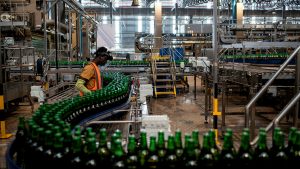By Godfrey Ofurum, in Aba
The Federal Government has been urged to extend the Nigerian Content Development initiative to local manufacturers to save the sector.

The NCDMB, established in 2010 by the Nigerian Oil and Gas Industry Content Development (NOGICD) Act, is vested with the mandate to make procedures that will guide, monitor, coordinate and implement the provisions of the NOGICD Act signed into law on April 22, 2010.
“The NCDMB initiative is saying that anything that can be bought locally for government projects, especially in the oil and gas sector, should be gotten in Nigeria. In any occasion it couldn’t be obtained here, then it would be imported through a Nigerian company,” Oduonye said.
“This is helping the oil and gas sector, but as well, it can and should be extended to local manufacturers. Government alone cannot provide all the required jobs. They need the local manufacturers. So, they should also help private sector players,” she said.
Oduonye advocated that the Federal Government move outside the box of the oil and gas sector and open the initiative up to other sectors.
“It should be made a serious rule to look inward first in executing any project that will require taxpayers’ money. If Power Holding Company wants to buy cables, they should look inward. By so doing, they are solving the company’s problems and, by extension, helping to create employment opportunities for Nigerians,” she stated.
She lamented that Nigeria’s import-based economy is adversely affecting local manufacturers, saying that it should be addressed to boost the economy. This would help create employment opportunities and reduce crime rate, as well as reduce capital flight from the many imported items.
“There is a big scramble for forex now. The amount of money going out of the country through importation is more than the amount coming into the country through export,” she said.
Oduonye decried the general perception by Nigerians that imported items are of higher quality, adding, “How many of these imported items were manufactured with specifications of their originating countries?”








New crude, old questions: Can oil reform deliver fiscal transparency?